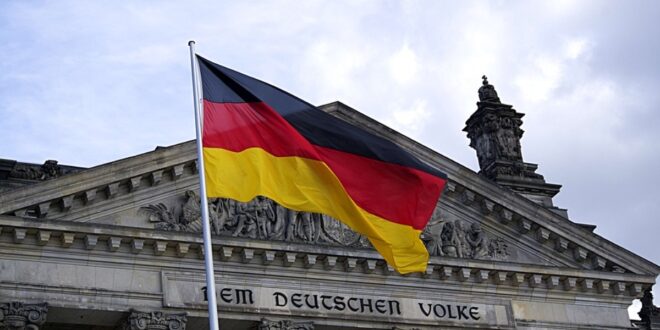Author: Magnus G. Schoeller
Affiliation: Not Mentioned
Organization/Publisher: International Affairs
Date/Place: July 2023
Type of Literature: Journal Article
Number of Pages: 20
Link: https://academic.oup.com/ia/article/99/4/1615/7187576
Keywords: Germany, EU, Leadership
Brief:
This article explores Germany’s historical reluctance to embrace a prominent leadership role within the European Union (EU). It also underscores the evolving dynamics that have compelled heightened expectations for Germany to assume a more central leadership position within the EU in the wake of various crises. At its core, this article seeks to address a fundamental query: Does the German political elite perceive their nation as an actual or potential leading power within the EU? Its overarching objective is to contribute both conceptually and empirically to our comprehension of Germany’s role in Europe, with a specific focus on ascertaining whether there has been a discernible shift in Germany’s self-conception pertaining to leadership.
The article posits that the self-concept held by a state’s political elite is crucial in shaping its willingness to undertake a leadership role within its region. It further delineates the distinction between the willingness to lead and the actual provision of leadership. The methodological approach adopted for this study involves the application of an elite survey, designed to glean insights into the opinions and attitudes of members of the German political elite concerning their country’s role as a leader within the EU. To facilitate this investigation, the article advances a comprehensive definition of leadership, which is subsequently deconstructed into nine distinct indicators. These indicators encompass various facets of leadership such as initiation of action, assumption of responsibilities, mediation, and exertion of influence, among others.
The survey findings unequivocally indicate that the German political elite, in general, expresses support for the idea of Germany embracing a leadership role across a spectrum of policy domains within the EU. However, a substantial chasm emerges between their aspirational vision of Germany’s leadership and their perception of its tangible performance in this capacity. The respondents’ conception of leadership is characterized by proactivity in addressing common challenges, facilitating mediation or compromise, assuming positions of responsibility, and articulating a visionary trajectory for the future. While many respondents advocate for Germany to play a leadership role, a significantly smaller proportion believes that Germany currently fulfills such a role within the EU. Notably, this divide becomes particularly pronounced when respondents assess Germany’s role within their specific policy spheres.
The article delves into the phenomenon termed the “leadership aspiration-reality gap” concerning Germany’s involvement in Europe, with a particular emphasis on Chancellor Scholz’s Prague Speech. Scholz expounded upon Germany’s aspirations for European leadership across various policy dimensions. Nevertheless, the survey results cast a shadow on the practical realization of these aspirations. The key policy arenas covered in the speech encompassed EU enlargement and institutional reform, sovereignty and defense, migration and fiscal policy, as well as the preservation of democratic values and the rule of law.
In the context of EU enlargement and institutional reform, while Scholz made noteworthy proposals, the concrete mechanics and consensus-building mechanisms to actualize these reforms remained somewhat nebulous. A similar ambiguity permeated Germany’s leadership role in realizing goals concerning European sovereignty and defense, except for specific defense-related initiatives. On the fronts of migration and fiscal policy, Scholz offered recommendations, but the precise manner in which Germany would furnish leadership in accomplishing these objectives remained elusive. The speech, in its discussion of supporting the European Commission in safeguarding liberal values, lacked specificity regarding the precise contours of Germany’s role in this endeavor.
In conclusion, this article serves as a comprehensive examination of Germany’s historical disinclination toward leadership within the EU, juxtaposed against contemporary exigencies that compel a reevaluation of this stance. It also underscores the importance of aligning political elites’ self-conceptions with concrete policy actions to bridge the aspirational gap and produce leadership in practice. Analysis of Chancellor Scholz’s Prague Speech further illuminates the intricate interplay between aspirations and realities in shaping Germany’s evolving role within the European Union.
By: Ruby Clayton, CIGA Research Associate




